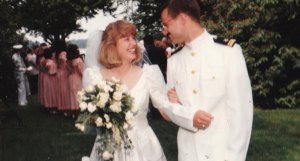I am re-learning how to waste time.
You would think as a pastor approaching fifty that I would be an expert in wasting time out of shear necessity. You spend enough time visiting families in ICU, walking in as the doctor is walking out telling you “You got it” as your member has just died and the family is wailing and throwing themselves over the still warm corpse, you figure out how to waste time, to decompress, as a matter of emotional survival. You look at enough children, you going down on one knee, eye to eye, to answer their question: “Why is mommy crying?” as you steal a quick glance at the tiny graves of two still born babies, one with the dirt freshly tamped down covering a coffin the size of a shoebox and you learn how to waste time. You just do. You walk into a hospital room to have a quick prayer before surgery for one of your seventy something year-old members as a nurse pulls you aside to whisper in your ear that your member’s husband just died down in the ICU due to a car accident and your member looks into your eyes and says, “Where is my husband? He said he would be here before I went down to surgery.” You better damn well learn to waste some time or this job will eat your lunch.
I once was an expert in wasting time, but then it was if I had forgotten how. I became too stressed to de-stress. And I guess that was the beginning of the end of my time walking the fence between occasional dark moods and clinical depression. I began to think that wasting time was a waste of time.
It isn’t.
I used to take a few hours here and there, camera always in the car, at the ready, to squeeze in a nature walk in between visits or other pastor stuff. As soon as I put on the big floppy sunhat, the one with built-in bug repellent and SPF 50 and traded my Rockports for the water-proof, snake-proof boots, I was off and going. The background noise of life melted into the songs of birds and crickets. The smell of the forests, swamps, and rocklands of the Florida Everglades and other nearby environs worked some sort of holistic magic, an anti-depressant of a class as old as dirt, literally. Walking with a camera, especially once I took up macro photography in which close ups of little things or parts of bigger things dominate the viewfinder, allowed me to slow down. Way down. To see with a fresh set of eyes the things so often missed, but full of beauty and wonder, the strokes of the brush from the hand of the Creator. In an hour or two, with a large memory card, I might shoot a couple of hundred photos of which a handful might merit keeping; a glorious waste of time besides the still waters, restoring my soul.
I cried a lot less then.
I am not naïve enough to believe that the Everglades hold all the answers or are all the cure I need, but I know that every moment of time wasted there provides co-therapy for my soul, if not for my heart and mind and strength, too. Wanting to work every waking hour to prove something to someone, to myself, to no one, to fill some need, real or imagined, in some mis-guided belief that in this day of struggling parishes and idealized mega-churches that one can pour enough time into the challenge to work some victory that is not attainable and is indeed a false god. We have been freed for freedom which we in turn, day by day decline. We clergy can work ourselves to death or re-learn the art of wasting time. It is our choice to make.

